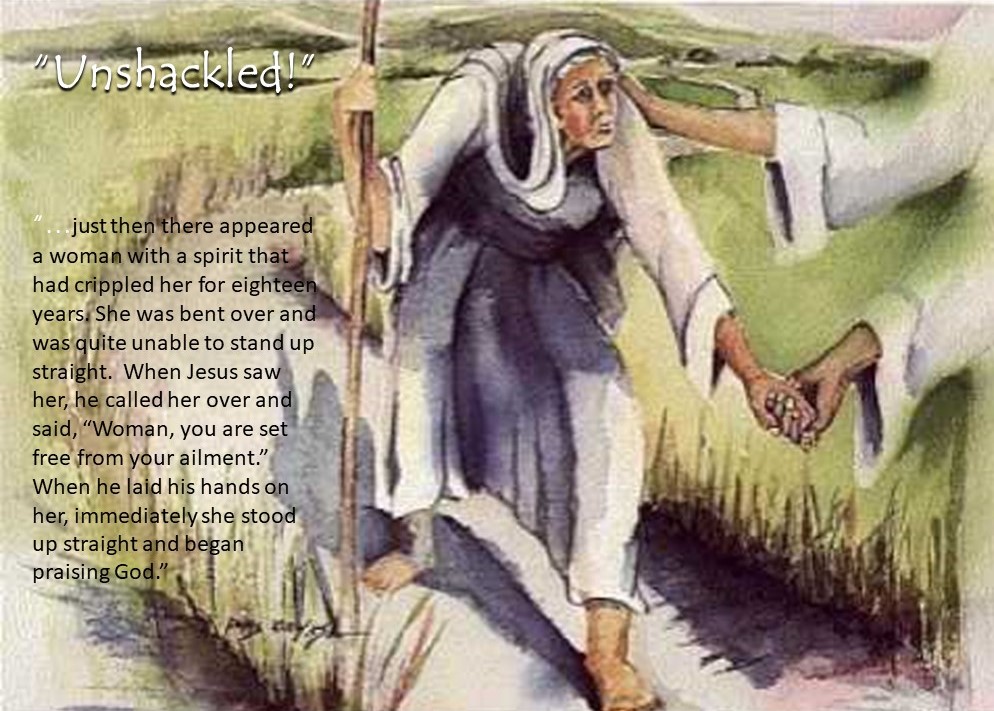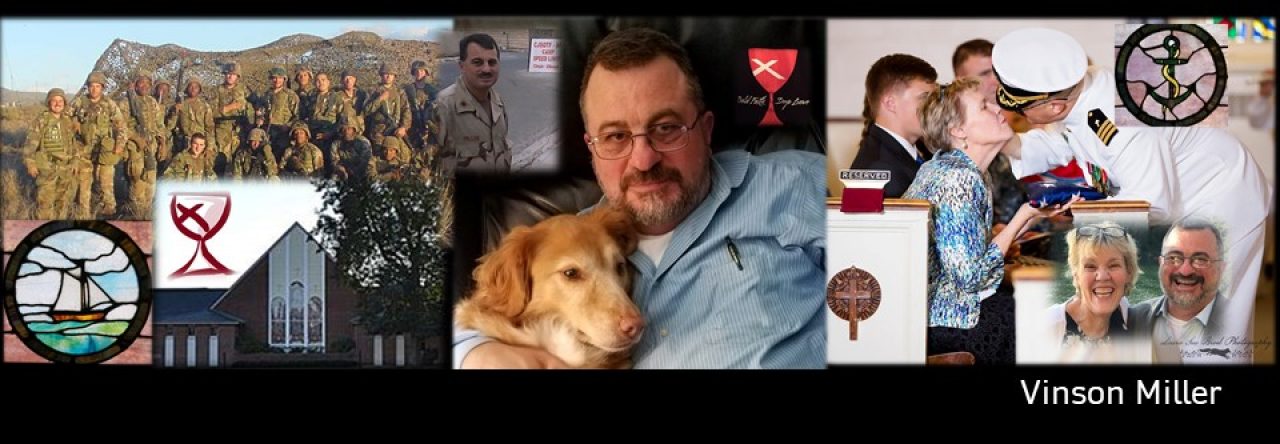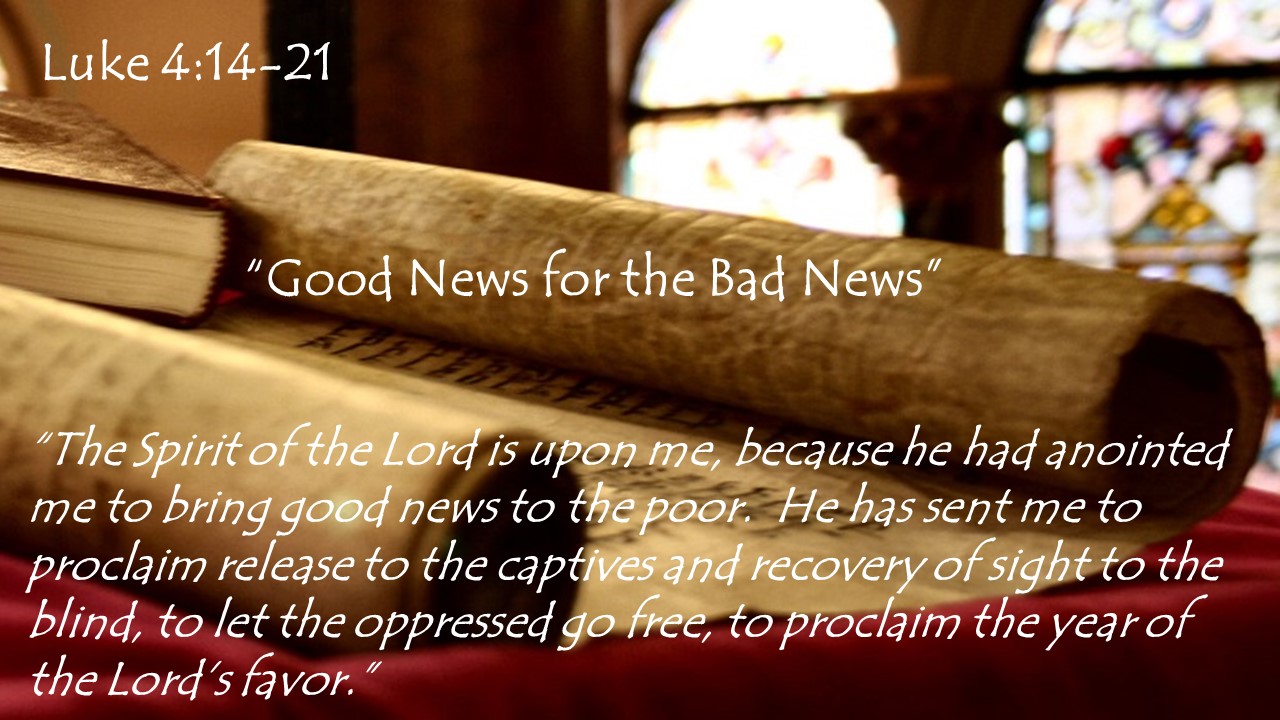 Sermon of 25 August 2019, preached at First Christian Church of Hampton VA. Honestly, this is one of those texts and sermons I would love to just sit and talk through – vice preach – it is such a rich, poignant text that has so many possibilities for discussion. So, when you read it… just take time for each piece to soak a bit in the ground before moving on. Re-read the creation narrative and God calling things “Good!” Then ask yourself why it’s hard for us to celebrate the “good” done for others? Or why animals will gain sympathy, but a woman would not? If God’s grace in Christ is truly amazing, we likewise do well to ponder the story,,, and who we identify with in various places and times.
Sermon of 25 August 2019, preached at First Christian Church of Hampton VA. Honestly, this is one of those texts and sermons I would love to just sit and talk through – vice preach – it is such a rich, poignant text that has so many possibilities for discussion. So, when you read it… just take time for each piece to soak a bit in the ground before moving on. Re-read the creation narrative and God calling things “Good!” Then ask yourself why it’s hard for us to celebrate the “good” done for others? Or why animals will gain sympathy, but a woman would not? If God’s grace in Christ is truly amazing, we likewise do well to ponder the story,,, and who we identify with in various places and times.
____________________________________
GOSPEL OF LUKE 13:10-17 (New Revised Standard Version)
Now he was teaching in one of the synagogues on the sabbath. And just then there appeared a woman with a spirit that had crippled her for eighteen years. She was bent over and was quite unable to stand up straight. When Jesus saw her, he called her over and said, “Woman, you are set free from your ailment.” When he laid his hands on her, immediately she stood up straight and began praising God. But the leader of the synagogue, indignant because Jesus had cured on the sabbath, kept saying to the crowd, “There are six days on which work ought to be done; come on those days and be cured, and not on the sabbath day.” But the Lord answered him and said, “You hypocrites! Does not each of you on the sabbath untie his ox or his donkey from the manger, and lead it away to give it water? And ought not this woman, a daughter of Abraham whom Satan bound for eighteen long years, be set free from this bondage on the sabbath day?” When he said this, all his opponents were put to shame; and the entire crowd was rejoicing at all the wonderful things that he was doing.
_____________________________________
INTRODUCTION
On this day there was perhaps a bit of a buzz with Jesus present. The crowd made up of mostly observant Jews with a smattering of Gentiles who feared God or were attracted to the moral teachings of Jewish law. Sure, there was word of Jesus being at the synagogue, but like decades ago in Virginia, when there were the “Blue Laws,” when everything was closed on Sundays, in this village everything would have been shut down for the sabbath and most folk would have been found at weekly worship.
The woman had already missed the opening of the service with the recitation of the shema – the confession of faith of “Hear O’ Israel, the Lord is our God, the Lord is One. Blessed is the name of His glorious kingdom for ever and ever,” as it continued with the words of Deuteronomy 6:5-9, Deuteronomy 11:13-21 and then Numbers 15:37-41. She would have also missed the readings from the Law and the Prophets, along with the prayer and thanksgiving that would have followed, walking in late, with Jesus already amid teaching and perhaps not sure what he was expounding upon.
Now think for a moment about this kind of entrance.
If any of us were so late as to not get here until during the sermon, would we have even bothered to enter into the service? {PAUSE} We’d be embarrassed or whatever else, I expect. At least from my perspective, even the last portion still matters, but if we were late… would we think so? In the end, she came on in, amid Jesus’ teaching.
WHY I BRING THIS UP
So it is that the Gospel reading implies some questions, between the lines of the text, for us to ponder amid our over-familiarity with Sunday worship, such as: What has us struggling in life? What kind of expectations do we bring before the Lord and just how might our vision on life be changed by encountering Jesus?
FOR INSTANCE
Writes Luke, “…there appeared a woman with a spirit that had crippled her for eighteen years. She was bent over and was quite unable to stand up straight.
After 18 years she had certainly become used to the routine of the life she endured, as she made her way in, others parting to let her through as she sat among the women, at the back of the synagogue as that’s likely where the women would have been seated or standing. In the shadows.
She didn’t approach him. Instead, Jesus noticed her. She is called up front.
Imagine for a moment, a life of being looked upon… with pity by some… maybe judgment by others… visible with affliction and now the center of attention by a prominent guest preacher.
“When Jesus saw her, he called her over and said, ‘Woman, you are set free from your ailment.’ When he laid his hands on her, immediately she stood up straight and began praising God.”
She makes no request, gives no plea, begs for no help, and makes no apology for being tardy. She is wordless. Like most of us, if we are honest, self-conscious about asking for ourselves on any given Sunday morning. Am I right?
We certainly aren’t told by Luke, the narrator, if she was anxious at being called up to the front. Nor are we told if she came forward with any hopes. There is just silence upon her lips, until Jesus speaks the word of healing.
Then things go sideways as the leader of the synagogue interrupts that sacred moment with something of an indirect rebuke to Jesus, when he addresses the synagogue – exercising an attempt to control the message of Jesus. Now I’m not really convinced the leader is a “bad guy,” but as the one responsible for upholding what is holy he appears stuck on the letter of the Law instead of its spirit, where Exodus 31:14 speaks of keeping the sabbath holy as a day of rest. It’s like there is a veil over his spiritual eyesight and the words of the Torah that are intended to reveal God’s will for wholeness has instead become a blinder that’s his infirmity of judgment and every bit as constricting of his spirit as physical disease was to the woman’s body.
He cannot celebrate what God has pronounced as “good.”
We might speculate he was thinking there’s no emergency after 18 years, no immediate danger, so no reason to act – the exception to the sabbath rule being action only to prevent an evil. After all, in a few hours the sun would be down and sabbath over – so if she’s already waited for 18 years, can’t she until then? It’s not like she isn’t late, so what’s the hurry? He doesn’t perceive the evil of leaving someone in an unjust situation.
As for the woman?
Maybe she was one of those who are chronically late.
Maybe it just took a long time for her to walk the distance from her home.
Maybe she was just tired of being asked if her back was any better, and it was just so much easier on her spirit to slide in late and avoid the well-meant or simply questions of curiosity.
Maybe she had gone back and forth in her mind, curious about this new teacher, before finally deciding to go – even if she would be severely late.
Maybe she had grown bitter in her pain and was making a point by creating a bit of a stir as a physical interruption to Jesus’ teaching.
We are not told why she was late.
We do know, having been through, or been with others through physical suffering, how suffering can really wear down the spirit, as fatigue sets in.
We do know that whether seeking the peace of acceptance or hope for change – either can sometimes seem rather elusive.
18 years. Half of the average lifespan in the days of Jesus. 18 years of being bent over, of having to look at people sideways when talking, of seeing the world constrained, of knowing no other future. 18 years of getting used to a present that’s also the future without mention by Luke, the ever-observant physician, of any previous attempts at cures as she apparently had not the means for what then passed for medical care.
Think of the perspective this woman had lived, bent over in life… in body… in spirit… with the disease process not just involving her spine, but her spiritual life as one never being able to look anyone in the eye and perhaps of not being free to take her rightful place among any ordinary crowd. She who had been broken in spirit as much as much as with pain and physical deformity. People can be so unkind. Some would make fun of her. With no husband mentioned, she may have been rejected… we just don’t know.
What we do know is that when suffering goes on month after month, year after year, it isn’t uncommon to think less of oneself. Denied the dignity that should be the lot of each person, a stand-in for everyone of us who has experienced impediments and restrictions. After 18 years, I would wonder if there was even a thought as to how her vision of the world could be changed that day.
And here’s the thing…. Jesus did not ask the woman what she can bear, what she is used to, or what she will settle for. Nor are there the unhelpful pep talk phrases that may feel good for the speaker but not the listener. There is only the Lord’s desire to restore a person’s life to her proper stature and that she can now be able to look our Lord in the eye.
Thus Jesus adds:
“And ought not this woman, a daughter of Abraham whom Satan bound for eighteen long years, be set free from this bondage on the sabbath day?”
People matter.
The phrase “daughter of Abraham” is no trite phrase, but the potent reminder that whether she is late or crippled or whatever else is going on – she is a member of the covenant community and this NATURALLY worthy of compassion.
So when challenged, it’s no wonder then that Jesus doesn’t let it pass but responds with the same kind of edge with the synagogue leader he does elsewhere with Martha, Peter, and even his own mother – when they get in the way of the work of the Kingdom:
“Does not each of you on the sabbath untie his ox or his donkey from the manger, and lead it away to give it water?
On this Sunday, poignant with history in Hampton in remembering the introduction of slavery 400 years ago this weekend upon these very shores, we are freshly reminded of the evils that regularly attack the worth of human beings.
Those evils in the past, like slavery.
Those evils in the present, like racism, sexism, and a host of other offenses which diminish people.
Those evils in the present which devalue, demean, injure, and isolate – whether of the body, mind or spirit – denying the full measure of living.
Jesus did not then and does not now let this pass unchallenged – inviting us to hear the words of freedom… to live in His joy… to praise God who has given us the song of freedom in His world!
SO WHAT?
If, as another has written, “Sometimes we see ourselves as hopeless, as failures, as cripples, as defeated, as small in our own eyes and in the eyes of others,” we also “…hear Jesus call (us), ‘My son,’ ‘my daughter,’ ‘daughter of Abraham,’ ‘child of God.’” [Sacred Space]
And so if “…Jesus loves me, then I CAN be someone to be proud of. I can change. I can leave the past behind. If God is for me, then who can be against me?” Each is therefore a son or daughter of Abraham , and in the gathering in Christ’s community – an acceptance of God’s love that generously gifts such acceptance to other sons and daughters.
“Daughter of Abraham,” says our Lord, “you’ve been bent over too long. Stand up, hold your head up and your healed back erect, for you ARE a child of God!”
Son of Abraham, straighten up and experience the unshackling of your spirit from that which cripples, for you ARE a child of God!
Amen!
__________________________________
Notes: Sacred Space, “Luke 13:10-17.” Accessed on 23 August 2019 at: https://www.sacredspace.ie/scripture/luke-1310-17-0
©2019 by Vinson W. Miller, Hampton VA.

 Sermon of 25 August 2019, preached at First Christian Church of Hampton VA. Honestly, this is one of those texts and sermons I would love to just sit and talk through – vice preach – it is such a rich, poignant text that has so many possibilities for discussion. So, when you read it… just take time for each piece to soak a bit in the ground before moving on. Re-read the creation narrative and God calling things “Good!” Then ask yourself why it’s hard for us to celebrate the “good” done for others? Or why animals will gain sympathy, but a woman would not? If God’s grace in Christ is truly amazing, we likewise do well to ponder the story,,, and who we identify with in various places and times.
Sermon of 25 August 2019, preached at First Christian Church of Hampton VA. Honestly, this is one of those texts and sermons I would love to just sit and talk through – vice preach – it is such a rich, poignant text that has so many possibilities for discussion. So, when you read it… just take time for each piece to soak a bit in the ground before moving on. Re-read the creation narrative and God calling things “Good!” Then ask yourself why it’s hard for us to celebrate the “good” done for others? Or why animals will gain sympathy, but a woman would not? If God’s grace in Christ is truly amazing, we likewise do well to ponder the story,,, and who we identify with in various places and times. Sermon of 27 January 2019, preached at First Christian Church of Hampton VA. The sermon delivered had a few really minor changes in the moment, as we continue to look at the intersection of discipleship and being a community centered in Jesus.
Sermon of 27 January 2019, preached at First Christian Church of Hampton VA. The sermon delivered had a few really minor changes in the moment, as we continue to look at the intersection of discipleship and being a community centered in Jesus.